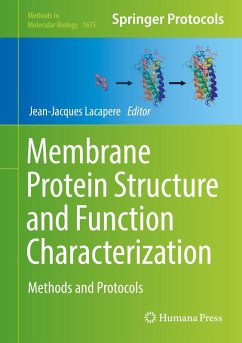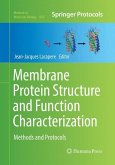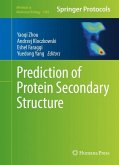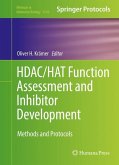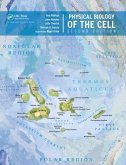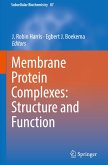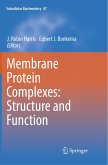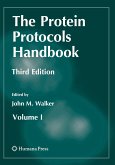In this present volume, different approaches are detailed to produce membrane proteins, purify them, study their function, determine their structure, and model them in membrane. Since every membrane protein behaves mostly in a unique way /fashion, knowledge of guidelines and tricks may help to increase chances to express, purify and characterize a peculiar membrane protein. Production of correctly folded protein remains a challenge. Moreover, getting a functional and stable protein requires to optimize membrane mimicking environments that can be detergent or artificial membranes. In some cases, the finding of the correct ligand which will stabilize the desired conformation is needed. In other cases, stabilization can be obtained using specific antibodies. This volume also presents different techniques to analyze the functional status of membrane proteins. Written in the highly successful Methods in Molecular Biology series format, chapters in Membrane Protein Structure andFunction Characterization: Methods and Protocols provide different techniques to analyze the functional and structural status of membrane proteins. Chapters include introductions to their respective topics, lists of the necessary materials and reagents, step-by-step, readily reproducible laboratory protocols, and tips on troubleshooting and avoiding known pitfalls.
Authoritative and practical, Membrane Protein Structure and Function Characterization: Methods and Protocols aims to ensure successful results in the further study of this vital field.
Authoritative and practical, Membrane Protein Structure and Function Characterization: Methods and Protocols aims to ensure successful results in the further study of this vital field.

